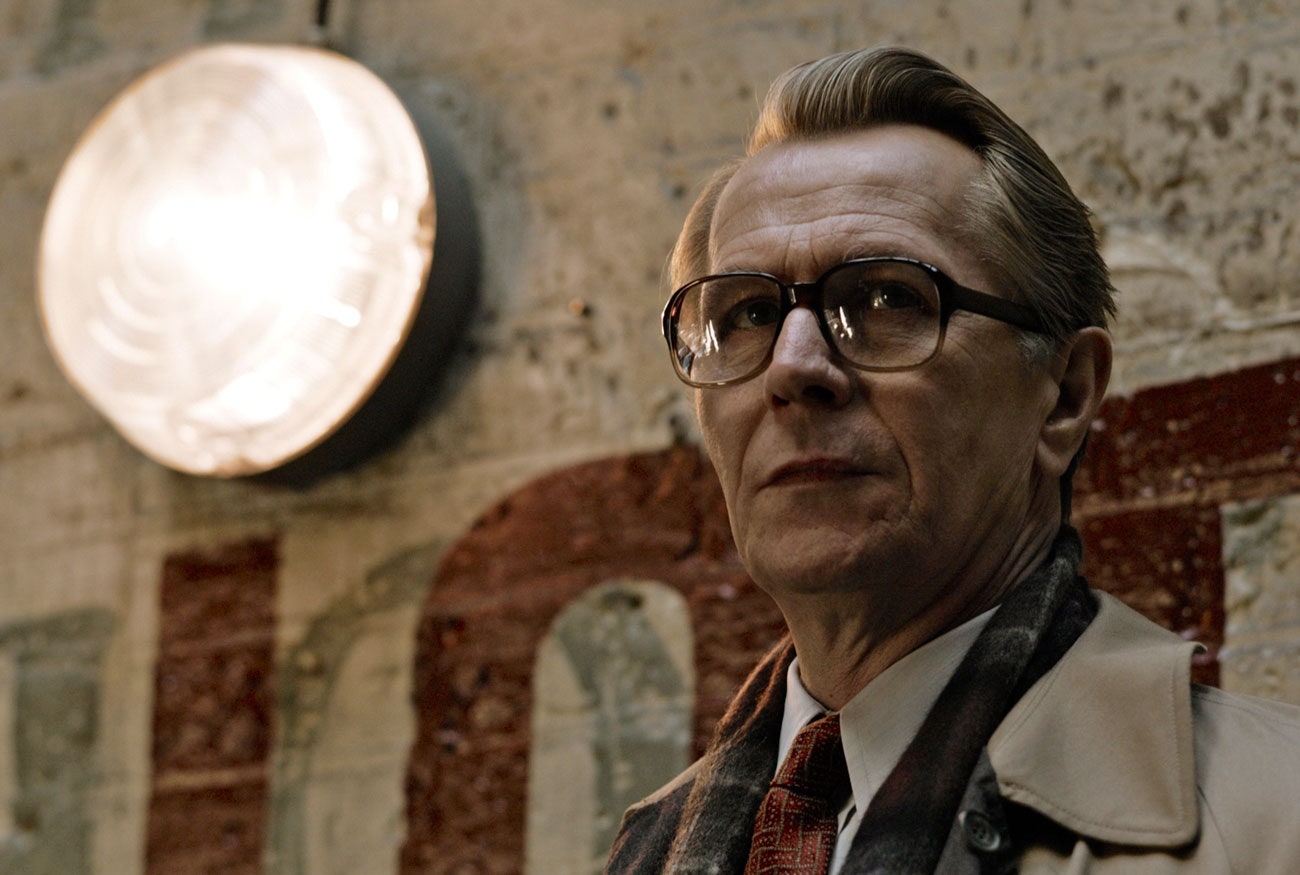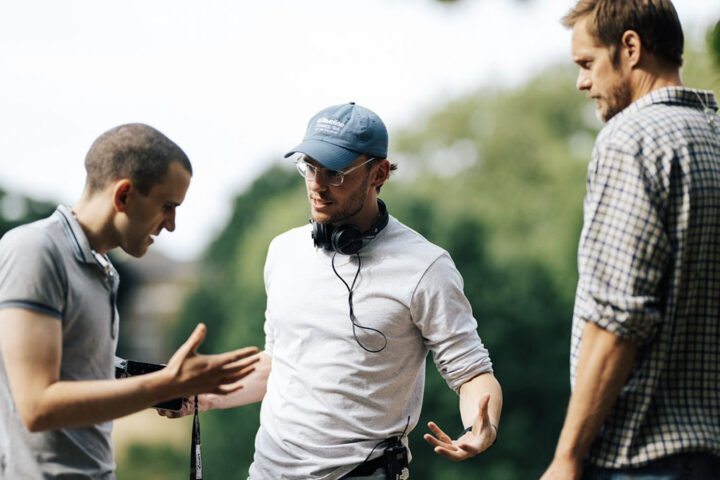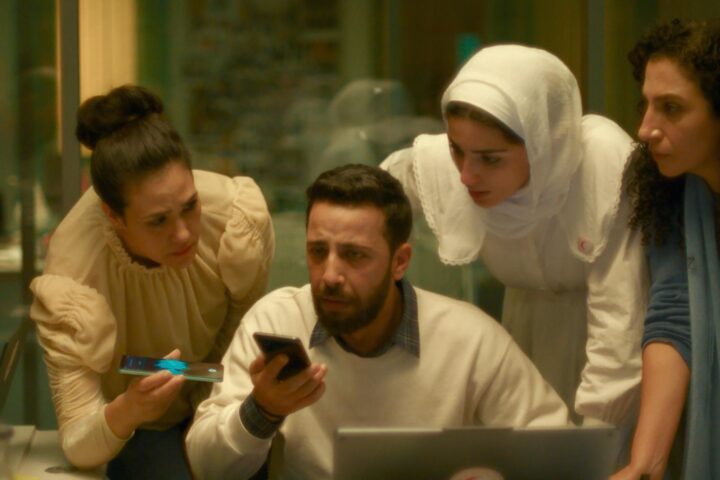In the new adaptation of John le Carré beloved Cold War thriller Tinker Tailor Soldier Spy, Gary Oldman delivers an engrossing performance as George Smiley, the retired head of the British secret service, who goes back into the fray to hunt a Russian mole hiding somewhere within the establishment. It’s a role made famous by Sir Alec Guinness in the 1979 BBC adaptation, but Oldman truly makes the character his own.
A usually larger-than-life performer with one of the most prolific resumes in the business, Oldman burrows inward as Smiley, going deeper into the man as he goes deeper into the investigation. It’s a quiet, contemplative and wholly gripping example of what an actor can do reverse-type, a performance all about quiet—a tall order for the iconic actor whose appeared in everything from early career gems like Sid and Nancy and Prick Up Your Ears, to bombastically memorable turns in The Fifth Element and Leon: The Professional, to tent pole work in both the Harry Potter and The Dark Knight.
I caught up with Oldman recently to discuss Tinker Tailor Soldier Spy, directed by Tomas Alfredson with at impeccable attention to a time and place—early 70s London’s sights, sounds and smells—and a patient eye toward his intriguing lead character, letting his actor peel back layers while the mystery comes into focus.
I tend to think of you in larger-than-life performances and roles, some of which you’ve made iconic. I was a bit taken aback by how minimal and suggestive your work is in this film. You really require us to come close to you, rather than vice versa. It’s a very internal work and unexpected from you, at least for me.
You play many things. In a career, you tend to get typecast. I have played characters similar to this many yeas ago onstage; I can think of several. I have been in musicals. I’ve danced. I’ve sang. There is a range of things that I’ve done. I have never been in a Shakespearean film, but I have done Shakespeare. So there all of those skills that you are not asked to do and don’t come your way. After Leon: The professional and The Fifth Element, which are sort of cartoons for grown-ups, I got a bit typecast. You’re at the mercy of what comes in the door; you don’t get offered every part. They didn’t ask me to do Foru Weddings and Funeral or When Harry Met Sally. You are at the mercy of the imagination of the people who are casting you. But then you get someone like Chris Nolan, who comes along and says, “I’m not going to cast you as a villain. I am going to cast you as this.” It’s just another part of my arsenal. They are doing Les Misérables, and I was after that, but they didn’t want me.
Your take on Smiley is somewhat different than Sir Alec Guinness, who made the role a signature one in 1979.
The challenge was the bury the ghost of Sir Alec Guinness. I don’t mean to deliberately go out there like an assassin. But he was the face of Smiley. He was the personification, even though James Mason and Denholm Elliott and Anthony Hopkins had played him. But he was so beloved and part of the English tradition. So that was the challenge—how can one essentially play the same role and say the same words and completely try and make it your own? Also, to keep what is essentially there as what is fundamental there as Smiley, which Guinness found. We are both climbing the same mountain. Smiley is the kind of guy that you have to go after. He can tickle you a bit, and then get you talking. Here there is a crueler side to Smiley; he is a bit of a sadist and masochist given that his wife keeps having affairs and he just accepts her back. And that emotionally must take a toll on someone. But he allows himself to be treated like that. I think those are characteristics of Smiley that are in the book and Guinness, for whatever reason, decided not to play. That whole scene with the plane- originally I was in a wood and garden, but we decided that he would do it in a far more subtle way. It’s not death; it’s exile.
Your director, Tomas Alfredson, has committed almost slavishly to the physical production here; it really feels like the early 1970s. He’s relatively new but very much a visual stylist.
Tomas is a very nice man, and that is as important as anything because you have to spend ten or twelve weeks with someone, becoming someone. Especially on this, because I was in every scene, virtually. That is a lot of time you are hanging out with someone. He is adorable, and he is an original piece. I have never met anyone who, when he discusses the look of the movie, because the film is gray and has this sort of nicotine look, talked with his DP and decided they wanted to capture the look of “damp tweed.” I don’t know many who talk like that. He was so unique.
I understand you were very specific about the glasses you chose for Smiley, which are highly defining.
There was a certain style from 1970-1974, and I found them in Pasadena from this guy named Russ, an amazing resource who has 30,000 pair of vintage glasses. Tomas wanted me to wear- they had to be iconic. They are like the Aston Martin. They are like that lighter. You see a Dunhill lighter and it’s almost like a work of art. If you were to take a photograph of Smiley’s glasses on the table, they have to be iconic. I knew when I put them on. But after three hundred pairs, I drove Tomas completely and utterly f**king mad.
I think my favorite line in the film is at the end between Bill and Smiley and is about the concept of “making a mark.” It’s an intriguing idea, really, to make a milestone while you are here; leave a legacy, perhaps. When you look back across your vast career of the last 30 years, what would be the mark—or performance—you are most proud of?
I don’t tend to think about old work. It is old work to me. I sort of look at it and go… Sid and Nancy… Oh! I can’t even look at it. I want to burn it. I am proud of this work in this film. I am honored and lucky to have been involved with two franchises of such pedigree with Harry Potter and Batman; that is a coup. I can’t think of many people who have had that opportunity. To do one is lucky enough! I did two. I worked with Oliver Stone on JFK. It’s a great movie and one of his best films. I have worked with both Ridley Scott and Tony Scott. So it’s been incomparable. It’s been a ride.



